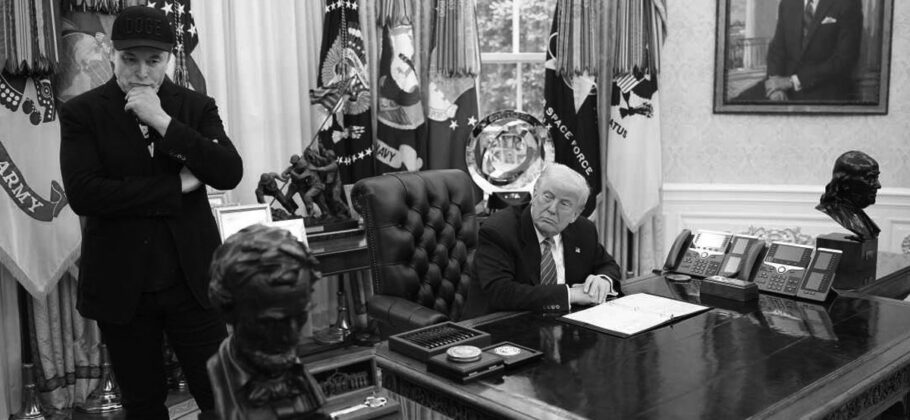Elon Musk has once again grabbed headlines by attacking President Trump’s latest tax-and-spending package. The billionaire tech mogul called it a “disgusting abomination” and warned that it would plunge the country into dangerous levels of debt.
Musk’s Blistering Attack
In a series of posts on his social media platform X, Musk laid out his reasons for opposing the bill. He wrote, “I’m sorry, but I just can’t stand it anymore. This massive, outrageous, pork-filled Congressional spending bill is a disgusting abomination. Shame on those who voted for it: you know you did wrong. You know it.” Musk’s words echoed the frustration felt by some fiscal conservatives who believe the bill fails to address the country’s mounting deficit.
Musk went on to warn, “This immense level of overspending will drive America into debt slavery!” He pointed to the fact that interest payments on the national debt already take up 25% of government revenue, a number that will only grow if spending isn’t reined in. He flagged a post by Senator Mike Lee of Utah that said, “The accrued interest on the national debt now exceeds $1 trillion a year – more than we spend on national defense,” adding that this was “debt slavery for the American people.”
Musk also shared a meme on X, showing a tiny pair of scissors labeled “Republicans getting ready to reduce the size of government,” which mocked the idea that the bill would truly cut spending.
What’s in the Bill That Musk Opposes
The bill, which has been dubbed the One Big, Beautiful Bill Act by its supporters, does several things that critics say will only make the deficit worse. According to Musk and other skeptics, the bill:
- Extends Trump’s 2017 tax cuts for all income groups, which will reduce government revenue.
- Adds new tax cuts for tips, overtime pay and Social Security benefits, which are part of Trump’s campaign promises.
- Boosts funding for border security, national defense and farmers, which means more spending without enough offsets.
- Reduces some spending on green energy tax credits, Medicaid and food assistance programs, but not enough to cover the new costs.
- Ends federal tax credits for electric vehicles, which is a direct blow to Musk’s Tesla business.
The nonpartisan Congressional Budget Office estimated the bill would add $2.4 trillion in deficits over the next decade, even after accounting for possible economic growth from the tax cuts.
Defenders of the Bill Push Back
Despite Musk’s fierce criticism, Republican leaders are defending the bill. Senate Majority Leader John Thune said that Republicans had promised to extend Trump’s tax cuts and would stick to that plan. Thune said he hoped Musk would “come to a different conclusion” about the bill.
Speaker of the House Mike Johnson dismissed Musk’s concerns as off base, saying Musk was “terribly wrong” about the bill’s impact. Johnson said the bill was “just the beginning of a long process of making government more efficient and effective, of cutting wasteful spending, fraud and abuse.”
President Trump, meanwhile, remains fully behind the bill. White House press secretary Karoline Leavitt told reporters, “The president already knows where Elon Musk stood on this bill. It doesn’t change the president’s opinion. This is one big, beautiful bill, and he’s sticking to it.”
Critics Find Common Ground with Musk
Interestingly, some of Musk’s biggest critics in the past have now found themselves agreeing with him about this bill. Senate Minority Leader Chuck Schumer said, “I agree with Elon Musk,” and called the bill a “big, ugly bill” that gives “tax breaks for the ultra-wealthy paid by gutting health care for millions of Americans.”
Senator Rand Paul also praised Musk’s comments, saying, “We have both seen the massive waste in government spending and we know another $5 trillion in debt is a huge mistake. We can and must do better.”
A Rift Between Musk and Trump?
The sudden clash over the spending bill is adding strain to the relationship between Musk and Trump. Just last week, Musk was at a White House press conference with Trump, and the two men praised each other in front of the cameras. But Musk’s harsh words about the bill have now raised questions about whether their partnership is fraying.
Speaker Johnson admitted that Trump is “not delighted” with Musk’s about-face. Johnson said he had a long talk with Musk on Monday and thought the billionaire was supportive, only to see him flip-flop the next day. “We were texting one another, you know, happy texts, Monday,” Johnson said. “And then yesterday, 24 hours later, he does a 180.”
Behind the scenes, sources told ABC News that Musk was frustrated not just with the spending levels in the bill, but also with the way the administration has handled issues like artificial intelligence and electric vehicle incentives. Musk was upset that the bill would cut the federal tax credit for new electric vehicles, a key part of Tesla’s sales. He was also reportedly disappointed when his ally Jared Isaacman’s nomination as NASA administrator was withdrawn.
Will it Pass?
The bill has already passed the House by a single vote, but it still faces hurdles in the Senate. Fiscal conservatives like Senator Mike Lee and Senator Rick Scott are demanding deeper spending cuts. They see Musk’s criticism as a reason to push for more reductions in programs like Medicaid and food assistance.
Speaker Johnson and Senate leaders are working to find a compromise that can keep the bill alive while addressing concerns about the growing deficit. But with Musk using his platform to rally opposition, the political battle over the bill is far from over.
As Musk put it in one of his final posts about the issue, “Mammoth spending bills are bankrupting America! ENOUGH.” Whether his message will sway Republican senators or change the bill’s fate remains to be seen. For now, it’s clear that Musk’s voice is once again shaping the debate in Washington, even as it puts him at odds with Trump and the Republican leadership.
NP Editor: One thing about the Trump/Musk relationship is that it can survive comments like this (and depending on the agenda, Trump and Musk are not above orchestrating such memes). Congress has the tendency to bloat the budget, perhaps Musk’s comments will slow down the bloating – framing a new attitude versus the same old, same old.





